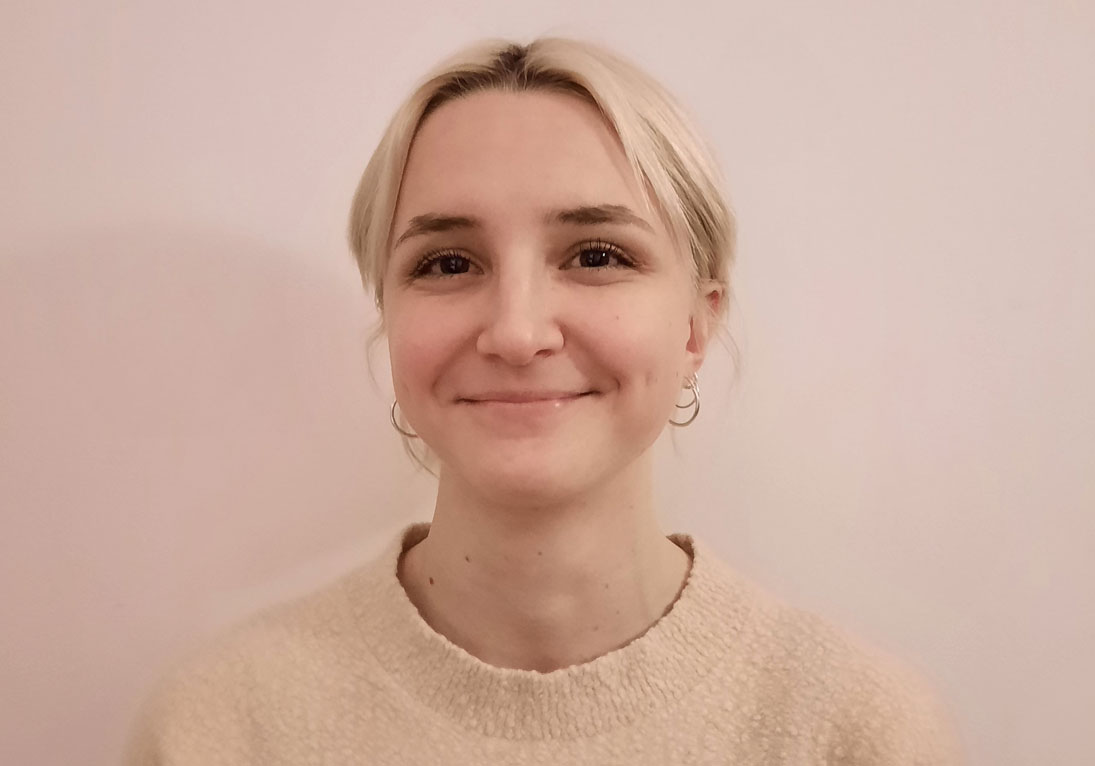Julia Södergren

Email: jus@plen.ku.dk
Affiliation: Section of Microbial Ecology and Biotechnology, Department of Plant and Environmental Sciences, University of Copenhagen, Denmark.
PRESENTATION
To provide sustainable food production in the ever-growing food market, there are plenty of scientific fields to engage in and evolve. For me, with a deep-rooted interest in biology, I early on decided to focus on the small things that have a big impact – microorganisms.
My academic journey started with a B. Sc. and M. Sc. in Engineering, Biotechnology at Lund University, Sweden. After my graduation in spring 2020, I was employed as a Research Assistant at the Department of Applied Microbiology at Lund University. Here I worked with understanding complex natural microflora of different matrices used for circular food production. This gave me a taste for research, for investigating complex microbiological phenomena, and the tools to combine these two in the pursuit of sustainable food production systems.
Luckily, I stumbled upon RASOPTA and what was to become my PhD project. Now I am conducting my studies at the Section of Microbial Ecology and Biotechnology at the Department of Plant and Environmental Sciences at University of Copenhagen, Denmark under the supervision of Prof. Mette H. Nicolaisen and Prof. Niels O.G. Jørgensen. My part in RASOPTA will be in WP2, where I will investigate the bacteria responsible for off-flavour production and degradation in RAS.
ESR 4: Microbial ecology of production and degradation of geosmin in RAS
Globally, aquaculture is the fastest-growing animal food sector and today 47% of the World’s consumption of fish originates from aquaculture (FAO Report 2018). The growing market for cultured fish reflects an increased global human population, exhaustion of common fish stocks in the sea and in freshwaters due to intensive exploitation, but also a higher consumer awareness towards healthy and low-fat foods with a low environmental footprint. The advantages of RAS are production of a large fish biomass in a reduced water consumption, better control of the water quality, a higher feed-to-fish flesh conversion due to control of the feed consumption, and low input of pathogenic organisms from external sources as compared to flow through systems.
However, recirculation of water in RAS creates favourable conditions for bacteria that produce organic compounds with an unpleasant earthy and musty off-flavour. Supporting this, sensory analysis showed that more than 60% of rainbow trout in Danish RAS farms had a detectable earthy taste. The off-flavours threaten expansion of RAS technology due to consumer dissatisfaction with bad-tasting fish, and consumers opt out RAS-produced fish. A dominant, microbial off-flavour is geosmin, and therefore geosmin-producing microbes are often used as proxies for off-flavour production in fish farm studies. The role of geosmin is well studied and understood in terrestrial environments, but the ecological role of geosmin in aquatic environments is not known. Few bacteria in RAS environments (biofilter and sludge) and culture collections appear capable of degrading geosmin and other off-flavours, but more studies are needed to identify strains with commercial potential for use practical use in RAS farms. This PhD project aims to understand the ecological role of geosmin in RAS-environment, as well as to investigate biological methods for its removal.
